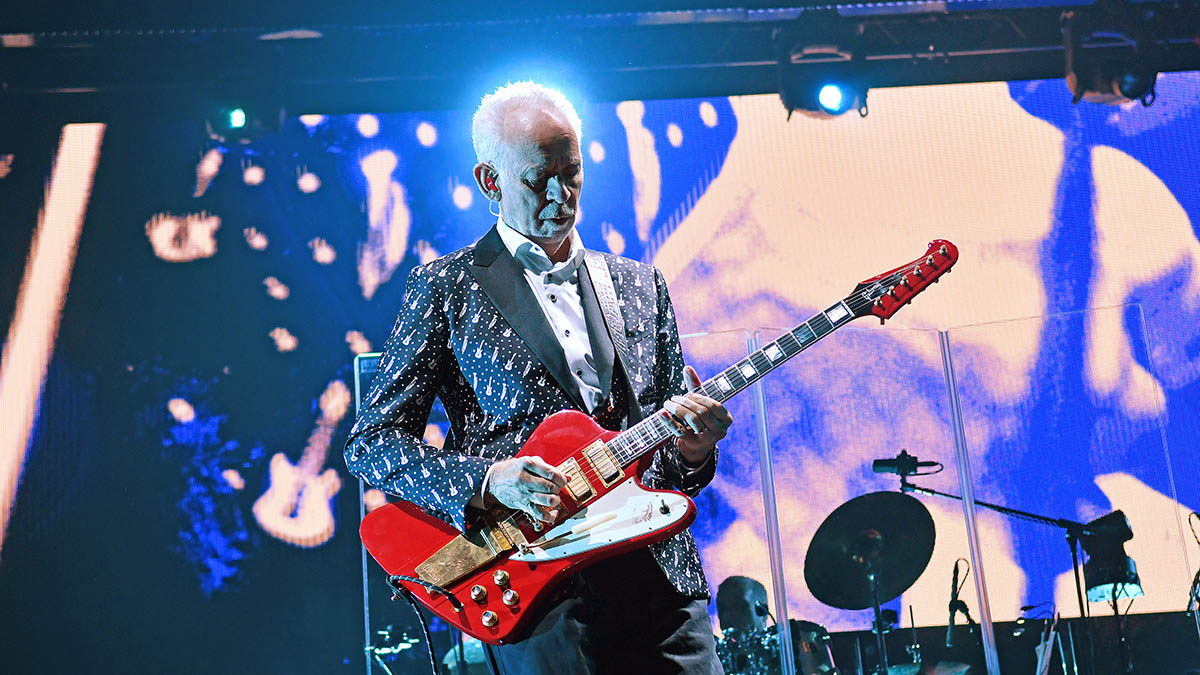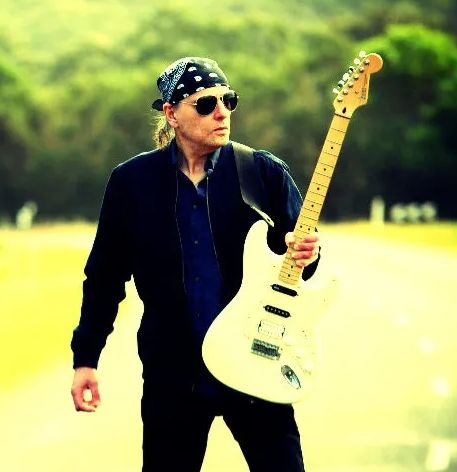Phil Manzanera: “When I lived in Venezuela, a British boy showed me how to play R&B like Chuck Berry and that was it. I was converted to rock ’n’ roll”
The longtime Roxy Music guitarist talks obscure gear, early gigs and embarrassing onstage moments

By Phil Manzanera’s reckoning, he has played on 80 albums over five decades, most notably as guitarist in the English rock institution Roxy Music, playing alongside Brian Eno, and pioneering a style that took elements of glam rock and augmented them with synth-pop, punk and an adventurist spirit.
As Roxy Music played a string of dates celebrating the 50th anniversary of the band, Manzanera checked in with GW HQ for a quick-fire, talking first acoustic guitars, his fondness for echo, and onstage disasters.
What was your first guitar?
“It was a Cuban guitar my mother bought to teach herself to play in Havana, Cuba, in 1957. It’s a beautiful little nylon-string guitar that has travelled with me my whole life – and I’ve also used it on records.
“I was about seven and because I kept wanting to touch it, she ended up teaching me how to play some ‘acompañamiento,’ which means a style of playing that goes “under” songs, and that’s how I started playing. Later when I was 10, I was given £5 as a birthday present by my parents and I used it as the deposit for a red Hofner Galaxie, which I still have.”
What were the first songs you learned to play?
“Cuban and Latin songs, what they call evergreen songs, which are still played today in the Spanish-speaking world. The songs had nothing to do with rock, as it was mainly music from South America.
Get The Pick Newsletter
All the latest guitar news, interviews, lessons, reviews, deals and more, direct to your inbox!
“The first song I learned from start to finish was Cielito Lindo. When I lived in Venezuela, a British boy showed me how to play R&B like Chuck Berry and that was it. I was converted to rock ’n’ roll and begged my parents to send me to London. I was nine!”
Do you remember the first gig you ever played?
“I had been sent to a boarding school in South London, and with some other friends at the school we formed a band with this crazy name – the Drag Alley Beach mob. We were about 12 and played on a stage in the school’s music room.”
Ever have an embarrassing moment on stage?
“There’ve been many hairy moments when your equipment isn’t working at crucial points where you could be at the mercy of a lead or a wireless system that just doesn’t work. One time, I was playing in Seville at a thing called Guitar Legends in 1991. I was the musical director and had chosen the best guitarists in the world, and we were playing outdoors and all these famous people were there.
“I was doing my own little set and half way through it, when there was a gap, and where I was supposed to come in with a new number, it suddenly stopped working. And this was being broadcast live on TV in America and all over the world! I thought, ‘Oh my God, what am I going to do?’
“Luckily, I had the Miami Horns with me, so they just improvised while the guys fixed my gear. It was the scariest moment in my career. And it’s happened quite a few times.”
What’s your favorite piece of gear?
“I love echo units. The cheapest one you could buy in the ’60s was a WEM/Watkins Copicat [Tape Delay]. If you’re not technically brilliant, with all the repeats, it can make you do incredible things. Also, I enjoyed early Pink Floyd, so I was a big fan of using weird effects and echos.
“When we started Roxy Music, [Brian] Eno and I had – as part of our setups – a Revox tape recorder that had a thing called Sel-Synch and Varipitch where you could change the pitch and echo repeats by changing the speed.
“I had it linked to a DeArmond volume pedal that controlled the speed and Sel-Synch functions on the Revox and provided weird echo effects that linked into Eno’s [EMS VCS3] synth. This was a completely different and revolutionary way of working that Eno and I used in 1972 and 1973.”
What is your proudest moment on any of the Roxy Music albums?
“The solo at the end of Ladytron and In Every Dream Home a Heartache because I get to wig out a bit more on those. Most of the time I’m serving the song since Roxy is song-based. I’d come up with these melodic little parts, the George Harrison approach, that would go really well with the song and the vocals.”
My main philosophy of wanting to enjoy guitaring for a whole lifetime has played out quite well
Looking back on your career, do you have any regrets about anything you’ve done musically?
“I’ve done about 80 albums in 50 years, not only my own but also producing and playing on other people’s albums, and obviously there are some things that I think I did better than others. But you do your best each time and some win through and some don’t.
“But my main philosophy of wanting to enjoy guitaring for a whole lifetime has played out quite well, where I’ve used it as a means to meet people and have fun. And also recognizing the therapeutic value of music and that you can contribute something not only to people’s happiness but to your own mental health.”
- The Best of Roxy Music is out now via Republic.
Joe Matera is an Australian guitarist and music journalist who has spent the past two decades interviewing a who's who of the rock and metal world and written for Guitar World, Total Guitar, Rolling Stone, Goldmine, Sound On Sound, Classic Rock, Metal Hammer and many others. He is also a recording and performing musician and solo artist who has toured Europe on a regular basis and released several well-received albums including instrumental guitar rock outings through various European labels. Roxy Music's Phil Manzanera has called him, "... a great guitarist who knows what an electric guitar should sound like and plays a fluid pleasing style of rock." He's the author of Backstage Pass: The Grit and the Glamour.
“I was in a frenzy about it being trapped and burnt up. I knew I'd never be able to replace it”: After being pulled from the wreckage of a car crash, John Sykes ran back to his burning vehicle to save his beloved '76 Les Paul
“His songs are timeless, you can’t tell if they were written in the 1400s or now”: Michael Hurley, guitarist and singer/songwriter known as the ‘Godfather of freak folk,’ dies at 83










